Seven faculty members in the College of Liberal Arts and Sciences at the University of Florida been awarded Research Foundation Professorships, given annually to recognize exemplary research and teaching.
Jillian Hernandez
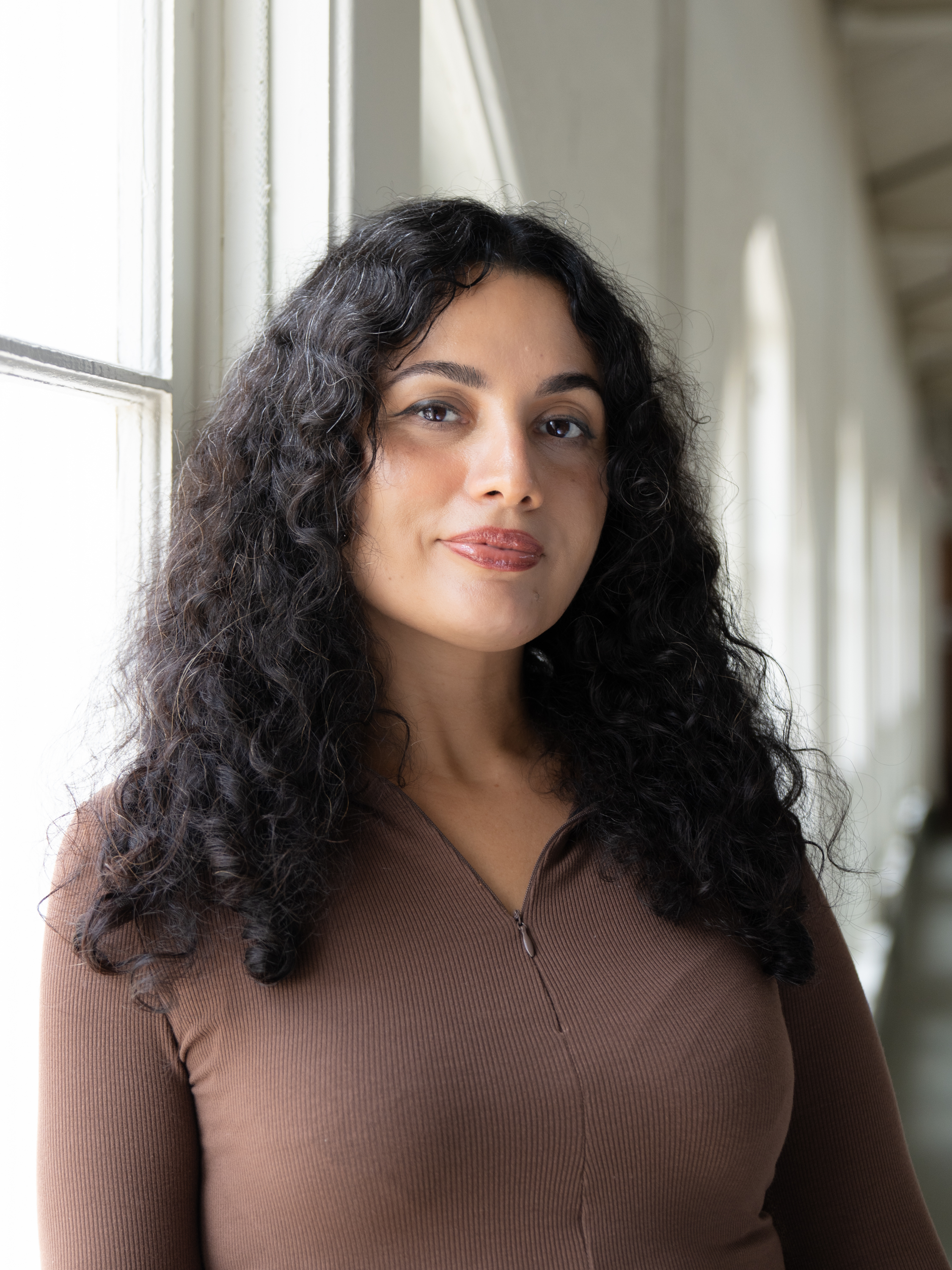
Jillian Hernandez, associate professor of gender, sexuality, and women’s studies, is considered a leading expert on many aspects of modern life, including contemporary art, popular culture, the politics of beauty, and fashion. Her work focuses on the experiences of Black and Latinx communities, elucidating how these communities negotiate gender, race, sexuality, and class relations.
“Her research is a rigorous integration of visual analysis, discourse analysis, interviews, and more,” said Bonnie Moradi, professor of psychology and the chair of the Department of Gender, Sexuality, and Women’s Studies. “She is also a community-engaged scholar whose research is informed by and informs her work as an art curator.”
Her first book, “Aesthetics of Excess: The Art and Politics of Black and Latina Embodiment,” embodies her work and commitments. Published in 2020, it discusses how Black and Latina women and girls’ bodies, especially their depictions in media, reinforce and subvert systems of power organized around race, gender, sexuality, and class. The book proved to be a critical success, receiving honorable mention for the American Studies Association’s John Hope Franklin Publication Prize for Most Outstanding Book and honorable mention for the Popular Culture Association’s Emily Toth Award for Best Single Work in Women’s Studies.
Hernandez has written dozens of articles that have found mainstream success, often because they examine social issues through the lens of pop culture. Her work on style and race resulted in an appearance on Good Morning America in 2022, where discussed the public debate around Hailey Bieber and cultural appropriation. Her work also has been featured by NBC News, Los Angeles Times, and Vogue. She has been published in academic journals, including Signs, the top journal in her field.
Hernandez is a highly-respected teacher and mentor at UF. She teaches a wide variety of classes in her department, including core classes, electives, and general education courses. In 2022, she received a CLAS Teacher of the Year Award, recognizing her excellence in undergraduate education and graduate student mentorship.
Kenneth Kidd
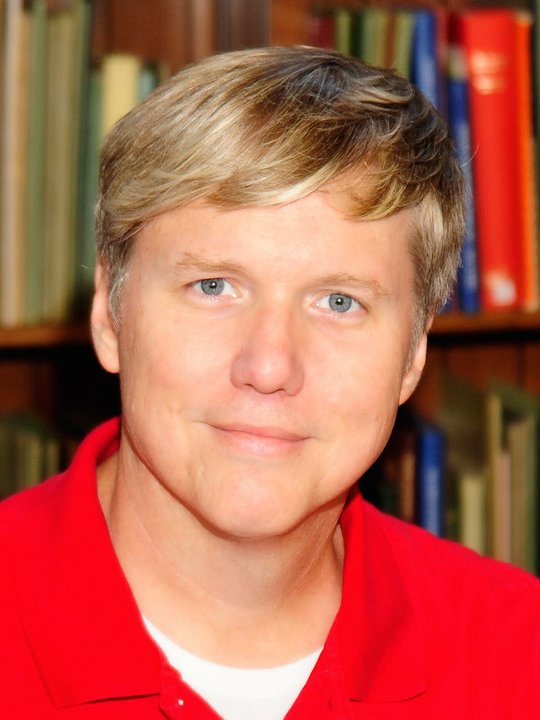
Professor of English Kenneth Kidd is an internationally recognized expert on children’s literature and how the books we read as kids and young adults influence our lives and cultures. His work focuses on the intersections between children’s literature and psychology, philosophy, critical theory, environmental studies, and gender and sexuality. His recent work examines these aspects within a Floridian context. His work has also explored fanfiction, digitization, and the question of what makes a literary classic.
Kidd has published three books on children’s literature, all of which received critical acclaim. His first book, covering cultural influences of social groups such as the Boy Scouts, received a recommendation by Rebecca Onion and Slate.com. His second book, on psychoanalysis and children’s literature, earned the Children’s Literature Association Honor Book Award in 2013. He served as a co-editor on six books, one of which received the Silver Medal at the 2022 Florida Book Awards.
Kidd is a prolific editor and contributor. He has contributed chapters to more than a dozen books and has served on editorial boards, including several for significant journals in his field, such as the Children’s Literature Association Quarterly. He has published many peer-reviewed articles and book reviews.
Kidd is not just a writer and professor, but also a mentor and advocate for students. He has directed 18 Ph.D. students to completion, who have taken on teaching and advising roles at colleges across the country. He has served on many more Ph.D., M.A., and M.F.A. committees and worked extensively with undergraduate students. He is a frequent guest speaker at conferences around the world, giving talks on his research and presenting awards in children’s literature. He has been invited to give dozens of talks, conferences, and presentations.
“His invitation to keynote the Australasian Children’s Literature Association for Research Biennial Conference as well as his collaborative work in the UK attests to Professor Kidd’s increasing international reputation,” said Professor and Department Chair Sid Dobrin.
Todd Palmer
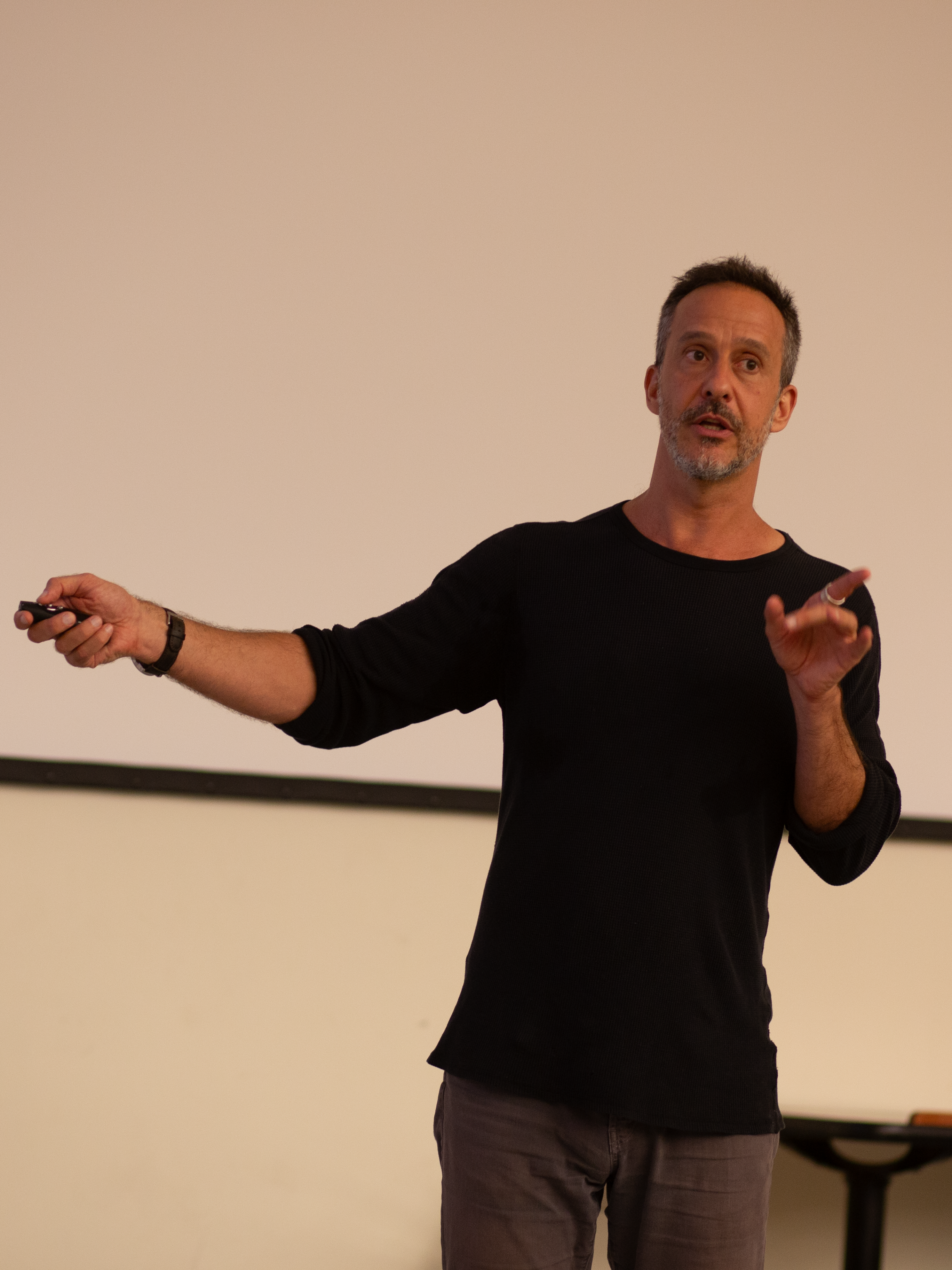
The fields of ecology and biology meet in the study of humanity’s relationship with our environment — paramount to the health of both. Professor of Biology Todd Palmer is considered by many to be a leading researcher in both fields. Palmer is a community ecologist who studies how people directly and indirectly impact environmental change with a focus on ecosystems in East Africa and the Bahamas. Through his research, he aims to understand how species loss or invasion impacts ecological functions, which could inform how best to restore damaged ecosystems.
“To answer these questions in the most impactful way,” Palmer said, “we combine long-term, large-scale experiments, globally distributed experimental networks, modeling, and observations, and employ a suite of modern methods, including DNA metabarcoding, isotope tracing, drone surveys, remote sensing, and novel physiological approaches.”
Palmer has published more than 100 peer-reviewed research papers that have been cited more than 14,000 times, according to Google Scholar. Twenty-eight of these were from the past five years. Some of them were selected by prestigious publications like Science, Nature, and Proceedings of the National Academy of Science. Palmer also was the subject of significant media attention recently, with a piece published in Science highlighting his work with native and invasive ant species in African savanna ecosystems.
Palmer recently was named a fellow of the Pan-African Scientific Research Council, a prestigious group of like-minded African and Africa-focused researchers. He has received awards for his teaching, including the UF Student Council Excellence in Teaching Award and two International Educator of the Year awards.
“Dr. Palmer is also a compelling and well-loved teacher and mentor to undergraduate and graduate students, and many of his research mentees have developed blossoming careers,” said Brad Barbazuk, professor and chair of the Department of Biology. “I am enormously grateful that someone with his talent plays a prominent role in our department’s and college’s research portfolio.”
Sadie Ryan
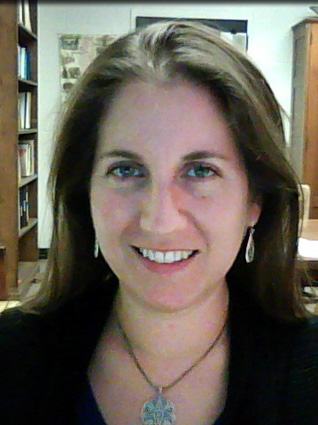
Sadie Ryan joined the Department of Geography a decade ago and quickly established herself as a leader in medical geography at the University of Florida. She earned tenure and a position as associate professor after three years, demonstrating her excellence in the classroom and the laboratory. Ryan’s work as professor and researcher is multifaceted, but revolves around disease. She is an expert on disease risk, making extensive use of modeling to analyze vector-borne and other climate-sensitive diseases in an ever-changing world.
“The need for spatial understanding in disease ecology and the global burgeoning climate-health crisis makes my work urgent and timely,” said Ryan. “It highlighted the need for spatiotemporal modeling and informatics tools in climate-health settings.”
Ryan splits her time between the Department of Geography and the Emerging Pathogens Institute; she serves as an associate professor of medical geography and as the co-director of the Florida Climate Institute. Her double appointment keeps her busy. In addition to teaching, she has published nearly 200 peer-reviewed articles on geography, entomology, ecology, and public health. Her ground-breaking work has a broad reach, receiving more than 11,000 citations, with nearly 7,800 of those in the last five years. Her writing extends beyond her research papers as she serves as an editor for the International Journal of Health Geographics, and as an associate editor on several more scientific journals.
Ryan is a frequent guest speaker and collaborator for other organizations. She has lent her expertise on disease emergence and climate dynamics to some of the largest health groups in the world like the Centers for Disease Control, the National Institutes of Health, and the World Health Organization. She has also served as a panelist and reviewer for these groups, and across multiple programs spanning social, mathematical, biological, and organismal science with NSF.
“All these roles aren’t merely titles,” explained Department of Geography Chair Jane Southworth. “They demand significant time and dedication, and her undertaking them accentuates the trust and respect she garners from her peers in the field.”
Lisa Scott
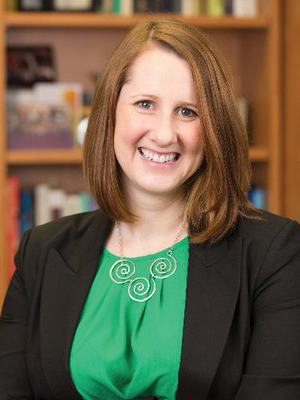
Understanding how the human brain works is the focus of Professor of Psychology Lisa Scott’s research, specifically how the brain and behavior develop during infancy and how the adult brain changes with learning.
On campus, Scott serves as a professor of psychology and as the director of the Brain Cognition and Development Lab, where she and her team have made strides in tracking brain development and how that development is shaped by our experiences. Under her leadership, the lab has garnered over $10 million from various organizations, including the National Science Foundation, the National Institutes of Health, and the US Army Research Institute for the Social and Behavioral Sciences.
Scott conducted a series of investigations with infants from six to 12 months of age, examining how they learned about objects and faces. She found that electrical brain responses, measured by EEG, were affected by the words they heard paired with what they saw. She has also studied how infants learn to recognize faces, and found that they tend to focus or “tune” their learning on faces of people they see and interact with most. This was among her 37 journal-published studies.
Scott is committed to training the next generation of psychologists and neuroscientists. Her work in science communication and community outreach has helped draw in many prospective students, and she has created training programs and formed mentoring networks for both trainers and trainees.
Among her many honors, Scott was named an National Academy of Sciences Kavli Fellow in 2014, she was awarded the Women in Cognitive Science Leadership Award in 2018, and received the UF Association for Academic Women’s 2021 Woman of Distinction Award. She has been invited to give numerous presentations as a guest speaker, and her work has been the subject of significant media attention.
“Her portfolio of funded research, high-impact publications, and awards put her at the top of the list of scientists in her field,” said Professor and Chair of the Department of Psychology Julia Graber.
Adrienne Strong
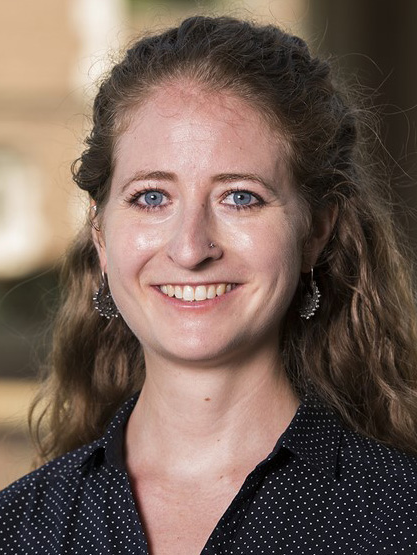
Associate Professor of Anthropology Adrienne Strong has spent her career studying the conditions and dynamics of care in biomedical health facilities. This research interest pushed her to become a leader in the field of medical anthropology, aiming to address the social issues prominent in the field of medicine.
“The impetus for all my research is a desire to understand and reveal drivers of inequity that
produce health disparities,” Strong explained. “Through understanding hospital power dynamics and processes, I contribute innovative theoretical insight and actionable recommendations aimed at changing healthcare delivery to improve the lives of individuals and communities.”
Strong’s primary field sites are in Tanzania, a populous East African nation. She has conducted research in five regions, with one project earning her an NSF Cultural Anthropology Senior Award for a project on pain care practices. She is working on her second book, which she hopes to finish by the end of the year, covering the lives of nurse-midwives and the evolving nursing profession in the country. Her most recent research proposal also concerns Tanzania, where she hopes to spend the next three years studying human milk donations and banking.
Like many researchers at UF, Strong travels frequently to share her work at symposiums, workshops, and conferences around the world. Most recently, she was invited to be a guest speaker at the 4th annual Health Systems Research symposium in Nagasaki, Japan later this year, a highly competitive invitation. She has been recognized with numerous awards and grants, including multiple NSF grants and the Society for Medical Anthropology’s Eileen Basker Memorial Prize for research on gender and health in recognition of her first book, “Documenting Death.”
“She is a leader in her field,” said Associate Professor and Chair of Anthropology Peter Collings. “Her work has drawn both national and international attention both for the quality of the research and the broader impacts her work has on anthropological practice, medical care, and policy development.”
Olivier Walther

Olivier Walther began working for UF as a visiting associate professor in the Center for African Studies in 2017. In 2019, he later accepted a position as assistant professor for the Department of Geography, and currently is associate professor. He had previously spent 10 years studying African geopolitics with a focus on cross-border trade and the emergence of transnational political violence in West Africa, research that he continues to this day.
His work in these regions has had a palpable impact on the people and organizations who call them home. In 2017, Walther helped establish a long-term partnership with the Organization for Economic Cooperation and Development (OECD) to conduct research on trade in North and West Africa. He considers this to be his biggest achievement, but it is just one of the few ways he has helped shape policies. His work has influenced the United Nations, and was the foundation for their Border Stability Mechanism program in West Africa. He has helped strengthen UF’s ties to Africa, founding the African Networks Lab and building the university’s expertise in spatial and social network analysis in the continent.
As his expertise would suggest, Walther has spent a lot of time in West Africa to immerse himself in his work. He has amassed millions of dollars in research grants for field work, studying the effects of armed conflict and terrorism, urbanization, and regional trade
Walther has two published books. One published in 2008 concerned cross-border trade and one in 2018 that covered African border disputes. He has written several reports as part of his partnership with OECD, dozens of research papers for publication in refereed journals, several book reviews and chapters as part of collaborations, and has contributed to issues of the West African Papers.
“Walther’s record bespeaks the kind of person who adds to the intellectual life and scholarly profile of a department,” said Department of Geography Chair Jane Southworth.